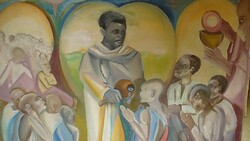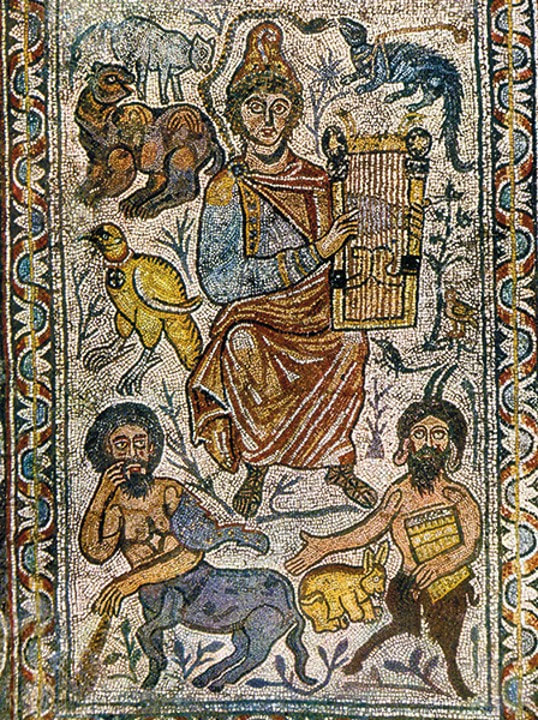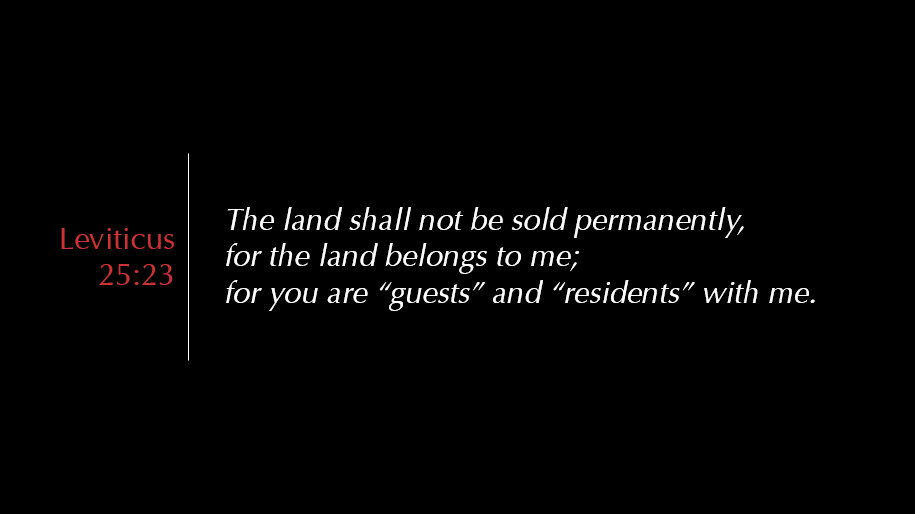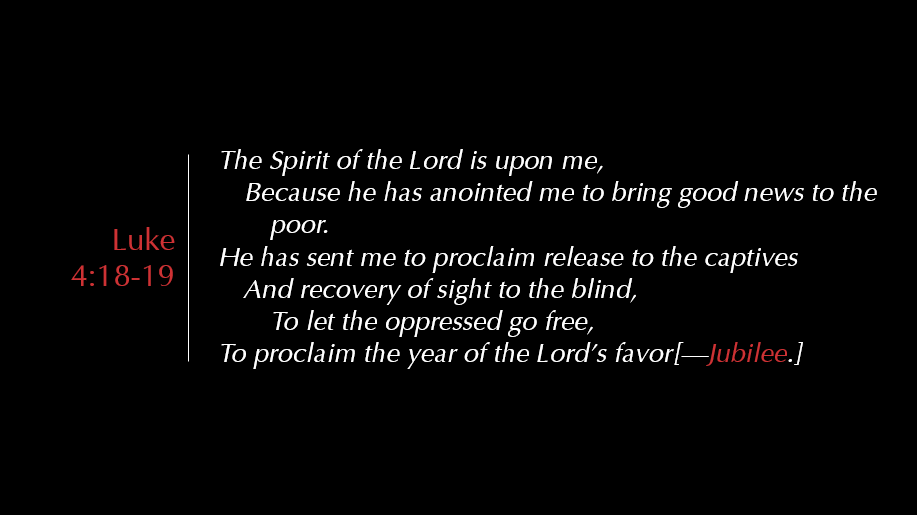Scott AndersonActs 5:27-32 † Psalm 118:14-29 † Revelation 1:4-8 † John 20:19-31 From the very beginning of the Christian church new disciples called catechumens were prepared during Lent for their baptism at Easter.  Catechumens were paired with sponsors and invited to a time of inquiry—learning, reflection and discernment within the church—because this move toward baptism was understood to be a radical move toward a new way of living in the world that required understanding and careful intention. In the early centuries of the Christian movement this was a particularly delicate process because followers of Jesus faced the constant threat of persecution—mostly from their neighbors. As the stories of Acts make clear, this decision to baptism was not a decision of where one might go to church, but whether these inquirers were prepared to face death for their commitments. And so the question very much before them was this: Was the life they were offered worth the death they might face? It is hard for us to imagine the choices required in this age given the religious freedom we know. The catechumenate process was also important because the language of faith was strange, and counter-intuitive, and filled with mystery. This is surely a reason for the use of symbolism so prolific throughout Christian history. Being formed into this faith required explanation, and room for questions to be explored; it required the learning of new words and ideas that were foreign to much of secular life. During the fifty days that followed, those who had been baptized and anointed and welcomed to the table at Easter were led more deeply into the mysteries they had now entered. Even as the facts on the ground are different for us today, we in the church have entered this same sacred space. During these next six Sundays of Easter we will seek to explore the unfolding of the mystery of God that delivers us from death to life. What does the resurrection really mean for us today, in this moment, as a community of believers? What is the role of the church God has created—especially for this time? And what is the nature of the claim on our life that results from our baptismal identity? The book of Acts replaces the Old Testament reading in the lectionary and joins the Gospel and the much-misunderstood book of Revelation as our primary texts to investigate these mysteries. Luke’s telling of the story of the early church invites our reflection into the nature of power within our own church and faith. The story of the Holy Spirit tells us of Christ’s presence within our midst even today. The authority of the early apostles in a hostile setting invites our own exploration into true authority even for our own fraught situations. This period between Easter and Pentecost is called “the fifty days”—a week of weeks—seven weeks plus a final great eighth Pentecost day, a jubilee day, a single day, the first day, that is fifty days long, a foretaste of the everlasting Day of God. You may remember something about the Old Testament notion of Jubilee. In Leviticus God instructs the Israelites, “The land shall not be sold permanently, for the land belongs to me; for you are ‘guests’ and ‘residents’ with me.”[i] Every fiftieth year the Israelites were commanded to let their land lie fallow, to let it rest. In addition, they were told to forgive debts. Forgive us our debts as we forgive our debtors. If land had transferred between tribes or families at any time during the previous 49 years, ownership of the land was returned to the original owner. This way everyone had enough, and a wealthy few did not hoard the majority of the resources and leave others in poverty. What would it look like if we were to practice such a radical ethic today? Can you imagine? Can you imagine the resistance? Can you imagine the outcry of the talking heads on cable news? Can you imagine the possibilities for the peace that could result if we truly gave ourselves to a way that charted enough for everyone? Can you imagine what might happen if enough people rose up with courage to say what would be today’s equivalent of Peter’s astonishing counter to those who hold his life in their hands: “We must obey God rather than any human authority.”[ii] The year of Jubilee required a dramatic display of confidence in God as the God who provides. Jubilee called for a healing of land and people. The land did not belong to whoever happened to hold a deed; it belonged to God. The Israelites were simply guests, resident aliens given the land to use and to care for according to God’s justice and peace. Luke tells us when Jesus stood up in the synagogue to read, he read from the prophet Isaiah, a text about Jubilee: Jesus’ coming was a jubilee. And Luke lays it out in the two volume Luke-Acts story in a repetitive, formulaic way to double-down on the point. People are healed and forgiven. Relationships are set right. The poor have enough. Captives are set free. Outsiders are welcomed as equals. The land and all the earth’s resources can rejoice as a future filled with promise comes into focus.
So Jesus’ resurrection marked a jubilee of human existence. This may nowhere be more evident than in this story from John’s gospel. It is the first day of the week, an eighth day, a Sunday, the day of resurrection as all our Sundays are, a jubilee when Jesus appears. The doors of the house are locked; the disciples are hiding in fear. This is a tomb. There is no life here, only distress and remorse and shame and confusion. Can you imagine? The whole assembly is gathered around their mutual sense of loss and guilt and failure. They have all failed in some way. They have all denied. No one has made it out of this story alive. I suspect that oftentimes it is so hard for us to believe because we are so aware of our own shortcomings, and so uncertain of whether we deserve the deference given to us. We are more aware of our failures than anyone who dares to name them for us. And in that kind of space we have little capacity to find on our own our way to new life. And so, Jubilee itself walks through those locked doors. And it breathes a word of peace on the grief, despair, and fear that has taken up residence. “Peace be with you,” he says. It is not an accident that we typically share this peace with one another after confession. We see it played out in this text this morning. Maggie pointed this out this week in a conversation with some area pastors. This thing, this One they had put all their hopes in has just been taken away by the state. And what is now left is blame, and anger, and fear. We can imagine the locked room is thick with it. And now, here he comes, waltzing in. And our troubles are compounded. Now they and we have to face this tsunami of failure and our own complicity in it on top of the grief of the moment. We tend to associate this Sunday with doubting Thomas. He doubts because he has not touched Jesus’ side and hands, because he has not seen for himself. But this story is set in the context of grace and forgiveness. Everyone in this story doubts. And for many of them, and many of us, our doubt is rooted in the question of whether anything can overcome our failure. Denying him could have consumed the rest of their lives. But Jesus makes a way through forgiveness. And soon they are able to believe again. And they are propelled with new energy out into the world in ways that the story of Peter in Acts illustrates. The South African leader Nelson Mandela was thrown into the notorious Robben Island Prison and forced to hard labor for most of his adult life—27 years—simply for demanding his freedom and the freedom of his people. Soon after Mandela’s release, he was asked how he was able to forgive the captors who stole so many years of his life. He said that as he was walking out, he took a look at the prison towers and realized that if he did not forgive, he would be in prison for the rest of his life. Mandela had to put to death his anger in order to be true to his mission. “If you want to make peace with your enemy, you have to work with your enemy,” he once said. “Then he becomes your partner.” There is no life until Jesus offers them life. As Jesus has been sent to be an agent for Jubilee, for reconciliation and new life so have his disciples. As God has sent me, “So I send you.” Then he breathes on them his Spirit and tells them this: You have been forgiven and now you have the power to forgive sins or not. You can choose not to, but if you choose so, consider the result. In your unwillingness to forgive you find your own tomb. In your anger you will be trapped in death. But in forgiveness, in the same forgiveness that we have received, we encounter the power and possibility of jubilee—not only for ourselves, but for our world. And this is indeed Gospel—good news, the promise of restoration to our true humanity. Amen. Notes: [i] Leviticus 25:23. [ii] Acts 5:29.
0 Comments
Leave a Reply. |
St. Andrew SermonsCategories
All
|



 RSS Feed
RSS Feed